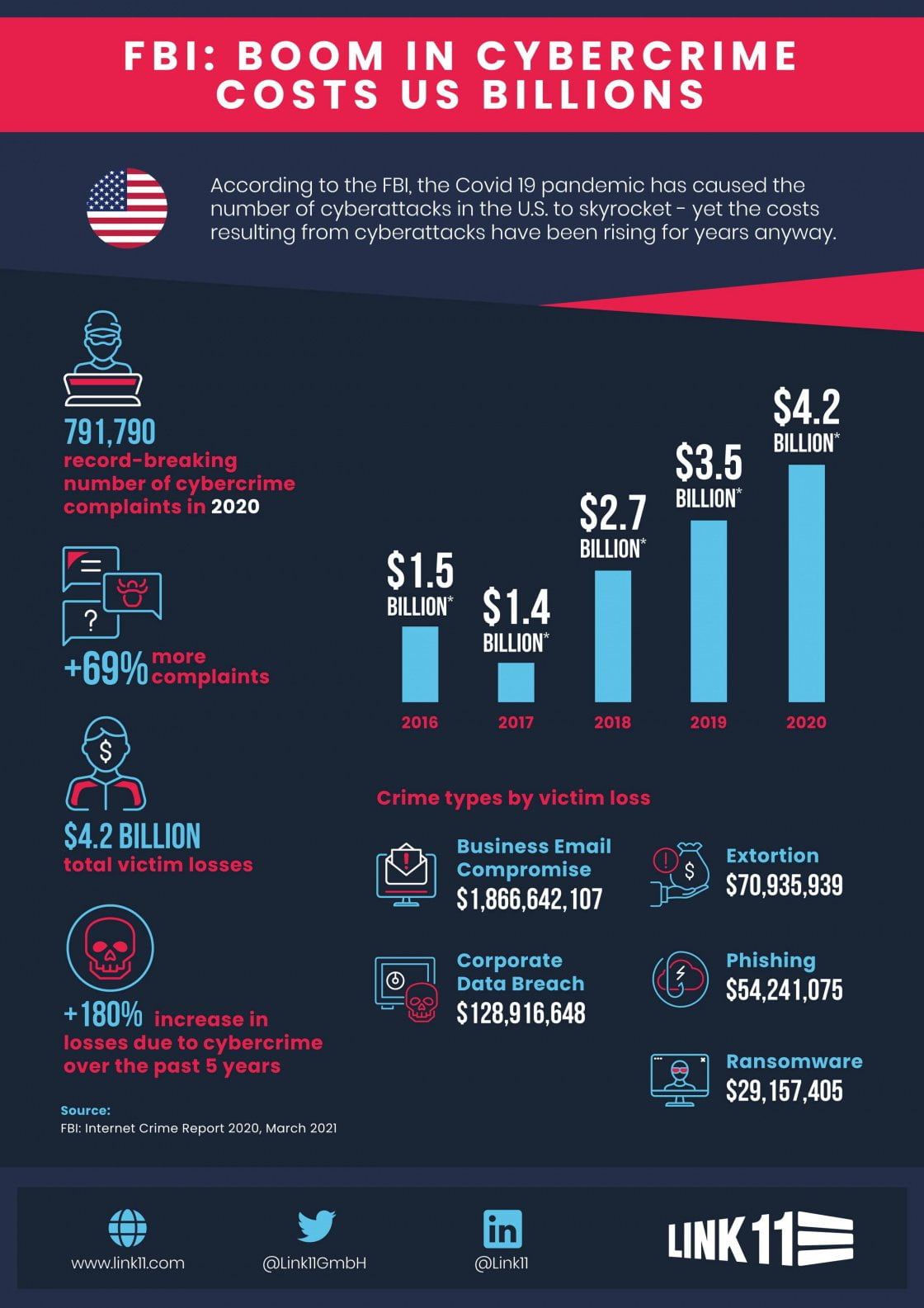Content

More than $4 billion in cybercrime losses reported to FBI in 2020.
The FBI has released its Internet Crime Report for 2020 this month. The report, which summarizes data submitted by the general public and businesses on its website portal, is produced annually. The total received complaints shot up 69% from 2019, with reported losses exceeding $4.1 billion. Thus, cybercrime continues to be on the rise in terms of the number of incidents and financial damage.

Most incidents reported related to business email compromise and email account compromise (BEC and EAC). In 2020, the FBI received 19,369 BEC/EAC complaints, the financial losses from which reportedly totaled some $1.8 billion. Other common forms of cybercrime, including corporate data breach, extortion, phishing, and ransomware, have continued to be popular, too.
The FBI points to the Covid 19 pandemic as an important reason for the increase in incidents: “cyber criminals took advantage of an opportunity to profit from our dependence on technology to go on an Internet crime spree.” At the start of the pandemic, the FBI internet crime center reported a major increase, with cybersecurity complaints going up from 1,000 complaints to over 3,000 – 4,000 complaints each day coming from businesses and individuals—the majority of cases revolved around aid and pandemic relief packages and stimulus funds.
Although the FBI’s report shows an increase in the number of cybercrime incidents, it must be assumed there are a very large number of unreported cases. Not all crimes are reported to the police and/or prosecution authorities. And not everyone recognizes when they have been subject to a cyber attack. The real attacks and the resulting damage is, therefore, likely to be considerably higher.
Regardless of the direct financial losses caused by cyber attacks, companies face long-term operational losses. These result from business interruptions, expenses for forensics, the restoration of the IT infrastructure, and reputational damage.
Sources mentioned: FBI: Internet Crime Report 2020, March 2021
